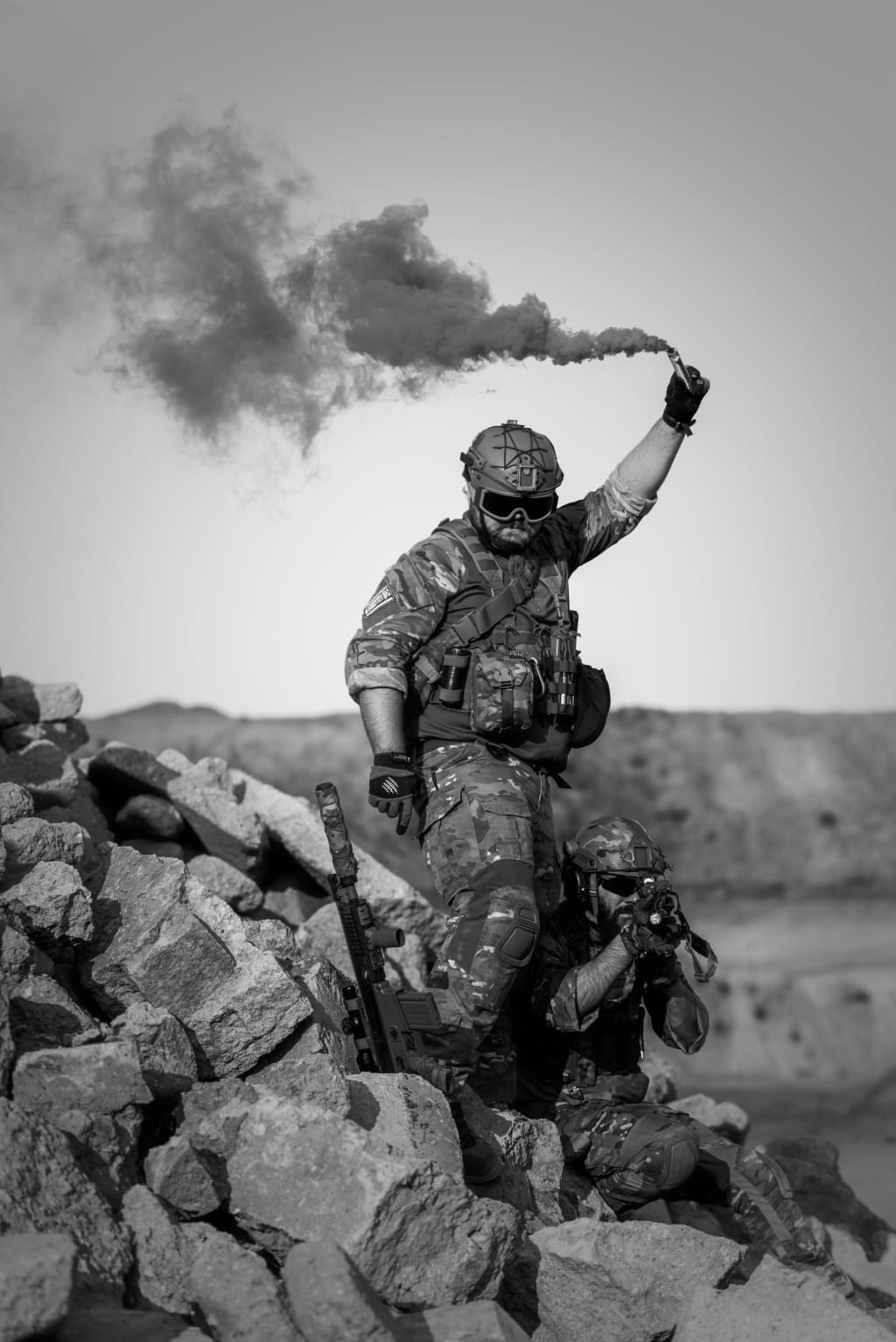Aftermath of World War II
The Enjoyment and Consequences of War

Introduction
In the aftermath of World War II, Europe took a path towards peace and unity, but today, it appears to be veering off course once again. The continent that witnessed the horrors of war and the devastation it wrought now finds itself grappling with conflicts, political divisions, and a resurgence of nationalist sentiments. This shift raises important questions about the enjoyment people find in war and the consequences it brings.
The Enjoyment and Consequences of War
It is perplexing how some individuals can derive enjoyment from war, considering the immense suffering and destruction it entails. The symbolic message conveyed by the recent war in Ukraine serves as a stark reminder of the consequences of such conflicts. Lives are lost, families are torn apart, and communities are shattered, leaving scars that last for generations.
The Accumulation of Weapons
One disconcerting aspect of the current global landscape is the relentless accumulation of weapons and armaments. Countries across the world invest significant resources in building and stockpiling arms, perpetuating a cycle of militarization and fueling the potential for future conflicts. The concept of "smart bombs" raises questions about the inherent destructive nature of such weapons and the misguided belief that they can mitigate the devastating impact of war.
The Entertainment Value of War
Paradoxically, society often finds entertainment in violent movies and video games that depict war, while simultaneously expressing shock and horror when confronted with the realities of real-life conflicts. It is crucial to recognize the stark difference between fictional consequences of war. While entertainment may provide temporary escapism, it is essential to acknowledge the profound implications of war on innocent lives and the lasting damage inflicted on communities.
The Economic Foundations of War
War is not only a destructive force but also an economic one. Certain industries thrive during times of conflict, as the a complex interplay between economic interests and the perpetuation of war. The arms industry, in particular, relies on conflicts to sustain its operations and profitability. This economic dependence on war raises ethical concerns and highlights the need to address underlying economic issues that perpetuate such reliance.
Apathy and the Inhuman Attitude Towards War
One disturbing aspect of our society is the apathy and lack of empathy towards the suffering caused by war. With the advancement of technology, conflicts can be observed from a distance, detached from the reality of the human toll. This distance can lead to a desensitization to the horrors of war, blurring the lines between entertainment and the actual loss of innocent lives. It is crucial to reject this inhuman attitude and cultivate empathy towards those affected by war.
The Failure of the United Nations
International organizations like the League of Nations and the United Nations were established with the aim of preventing conflicts and promoting peace. However, despite their noble objectives, conflicts persist around the world. The United Nations, in particular, has faced challenges in effectively addressing global issues and mediating conflicts. This failure raises concerns about the efficacy of international efforts in maintaining peace and resolving disputes.
Awakening and Changing Perspectives
In order to break the cycle of violence and war, individuals must awaken to the destructive nature of these conflicts and change their perspectives. It requires letting go of anger and hatred and embracing empathy and compassion. Only by recognizing the interconnectedness of humanity can we begin to prioritize peace and work towards a world free from the ravages of war.
Peace Begins with the Individual
Achieving world peace necessitates a fundamental shift in our approach to conflict and violence. It begins with each individual cultivating inner peace within themselves. By finding harmony and tranquility within, we can radiate peace outwardly, influencing our communities and, ultimately, the world at large. Personal transformation and the cultivation of a peaceful mindset contribute to the collective effort of building a more harmonious and peaceful global society.
The Connection between Individual Peace and Global Peace
It is essential to understand the intrinsic connection between individual peace and global peace. Each act of kindness, each effort to resolve conflicts peacefully, and each commitment to empathy and understanding creates ripples that can lead to significant change. By prioritizing personal peace and spreading it to others, we contribute to a broader movement towards a world that values dialogue, cooperation, and the preservation of human life above all else.
In conclusion, the enjoyment some people find in war is deeply troubling, considering the immense suffering and consequences it brings. The accumulation of weapons, the entertainment value associated with war, and the economic foundations that sustain it further compound these concerns. It is vital to confront the inhumanity of war, challenge the failures of international institutions, and work towards personal transformation and a mindset that prioritizes peace. Only by embracing empathy, recognizing the interconnectedness of humanity, and fostering inner peace can we hope to create a world free from the ravages of war and conflict.
The Power of Collective Action
Addressing the deep-rooted issues surrounding war requires collective action and a united front against violence. Individuals must come together to advocate for peaceful resolutions, demand accountability from governments and international bodies, and support initiatives that promote diplomacy and conflict resolution. By joining forces, we can amplify our voices and work towards a world where war becomes an obsolete means of resolving conflicts.
Education and Awareness
Education plays a crucial role in shaping perspectives and fostering a culture of peace. It is essential to educate future generations about the devastating consequences of war, the importance of empathy, and the value of peaceful dialogue. By instilling these values in young minds and raising awareness about the true cost of conflicts, we can nurture a generation that actively seeks alternatives to violence and actively contributes to peacebuilding efforts.
Diplomacy and Mediation
Diplomacy and mediation are powerful tools in preventing and resolving conflicts. It is crucial for nations and international bodies to prioritize dialogue, negotiation, and peaceful means of dispute resolution. By investing in diplomacy and building strong mediation frameworks, we can create avenues for peaceful resolutions and reduce the likelihood of resorting to armed conflicts.
Reducing Arms Trade and Military Spending
To break free from the cycle of war, it is imperative to address the issue of arms trade and excessive military spending. Governments and international bodies should work towards reducing the global arms trade and redirecting resources towards sustainable development, education, healthcare, and poverty eradication. By curbing the proliferation of weapons and redirecting funds towards peaceful endeavors, we can tackle the economic foundations that sustain war.
Promoting Conflict Prevention and Peacebuilding
Preventing conflicts before they escalate into full-scale wars is crucial in building a more peaceful world. Investing in conflict prevention initiatives, fostering dialogue, and addressing the root causes of conflicts such as poverty, inequality, and political instability are essential steps towards sustainable peace. Moreover, supporting peacebuilding efforts in post-conflict regions can help rebuild societies, reconcile communities, and establish the foundations for lasting peace.
Global Cooperation and Solidarity
War knows no boundaries, and its impacts are felt globally. To address the challenges posed by war, there must be a strong commitment to global cooperation and solidarity. Countries and individuals must transcend geopolitical differences and work collaboratively to promote peace, resolve conflicts, and address the underlying issues that perpetuate war. Only through collective action and a shared commitment to peace can we hope to create a world free from the devastation of war.
In conclusion, the enjoyment some individuals find in war is a disturbing phenomenon that must be confronted. By prioritizing education, empathy, diplomacy, and peaceful means of conflict resolution, we can work towards a world that rejects the destructive nature of war. It requires a collective effort, a commitment to addressing economic and political factors, and a transformation of individual perspectives. Let us strive for a future where peace is valued above all else, and the horrors of war become a thing of the past.
Investing in Sustainable Development
One of the fundamental ways to combat the allure of war is by investing in sustainable development. War often thrives in regions plagued by poverty, inequality, and lack of opportunities. By addressing these underlying issues and promoting economic growth, social equity, and environmental sustainability, we can create conditions that discourage the outbreak of conflicts. Sustainable development not only improves the lives of individuals but also fosters a sense of hope and stability, reducing the likelihood of resorting to violence.
Strengthening International Institutions
The failure of international institutions like the United Nations in effectively addressing global conflicts raises concerns about their efficacy. It is crucial to strengthen and reform these institutions to ensure they have the necessary tools, resources, and authority to prevent and resolve conflicts. Enhancing the United Nations' capacity for conflict mediation, peacekeeping, and humanitarian assistance can lead to more effective responses to crises and reduce the inclination towards war.
Encouraging Dialogue and Reconciliation
In war-torn regions, fostering dialogue and reconciliation processes is essential for healing wounds and rebuilding trust among communities. Truth and reconciliation commissions, interfaith dialogues, and community-based initiatives can help address grievances, promote understanding, and facilitate the transition from conflict to peace. By providing avenues for dialogue and actively involving local communities, we can create a sense of ownership and empower individuals to actively contribute to peacebuilding efforts.
Promoting Cultural Exchange and Understanding
Cultural ignorance and misunderstandings often fuel conflicts and perpetuate divisions. Promoting cultural exchange, understanding, and appreciation can break down barriers and foster a sense of global citizenship. By encouraging people to embrace diversity, learn from one another's cultures, and celebrate our shared humanity, we can cultivate a culture of peace and mutual respect. This cultural transformation plays a crucial role in dismantling the glorification of war and embracing peaceful coexistence.
Investing in Conflict Resolution Education
Conflict resolution education equips individuals with the necessary skills to peacefully address conflicts at interpersonal, community, and international levels. By integrating conflict resolution curricula in schools, universities, and communities, we can empower individuals to resolve disputes through dialogue, negotiation, and nonviolent means. Teaching conflict resolution from an early age promotes a mindset of peaceful problem-solving and equips future generations with the tools to prevent and mitigate conflicts.
Engaging Civil Society and Grassroots Movements
Civil society organizations and grassroots movements have been at the forefront of advocating for peace and challenging the status quo. Their efforts in raising awareness, mobilizing communities, and pushing for policy change are invaluable in the quest for a peaceful world. It is important to support and collaborate with these organizations, amplifying their voices, and providing platforms for their participation. By harnessing the collective power of civil society, we can drive meaningful change and contribute to a more peaceful future.
In conclusion, addressing the enjoyment people find in war and its consequences requires a multifaceted approach. By investing in sustainable development, strengthening international institutions, promoting dialogue and reconciliation, fostering cultural exchange, educating for conflict resolution, and engaging civil society, we can lay the foundation for a world that values peace, rejects war, and cherishes the well-being of all humanity. Together, we can steer the course away from the destructive path of war and towards a future filled with compassion, understanding, and lasting peace.






Comments
There are no comments for this story
Be the first to respond and start the conversation.